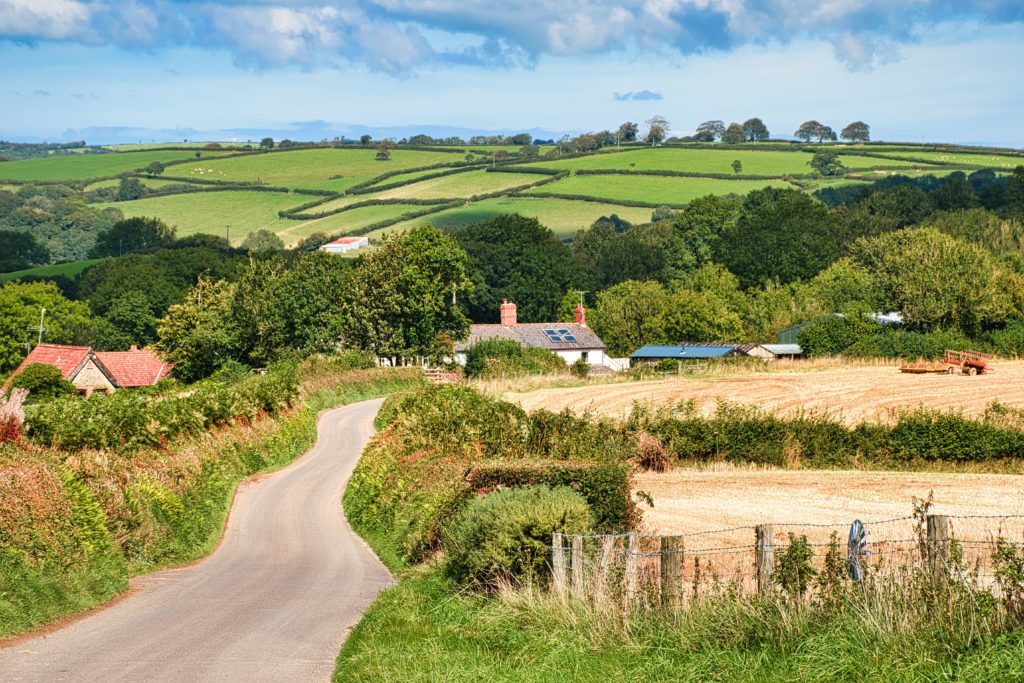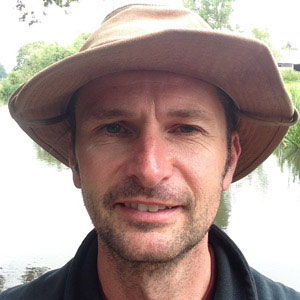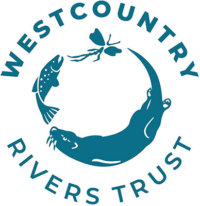Project team

Why it matters
Agricultural intensification through the 20th century has had a significant impact on natural capital (e.g. soil, water, ecosystems) and the flow of ecosystem services (e.g. clean air and water, climate regulation, recreational enjoyment). In recognition of this, the UK government has set out ambitious targets through their 25 Year Environment Plan to deliver net improvements in England’s environment within a generation. Integral to this is the natural capital approach to decision making. Advocates of the approach have suggested it could be used in local farm scale decision making, but there are currently very few examples showing this.
Matt worked with SWEEP’s Prof Richard Brazier and Prof Brett Day, in partnership with Clinton Devon Estates – a large farming estate in East Devon – and Westcountry Rivers Trust who work with SWW’s Upstream Thinking Programme, to address this need. Matt’s work investigated the natural capital impacts of different agricultural farm systems, over a range of intensities, applied on the same farming estate under two different farming systems (organic and conventional). It was anticipated his findings would enable farmers, estate owners and policy makers to make more cost-effective long-term environmental and economically sustainable decisions.
Partners
‘The process of supporting this PhD, and the scientifically robust site-specific data it delivered, is contributing to the wider body of evidence that is changing our way of thinking, decision making and practices around how we manage our land at Clinton Devon Estates, to ensure we deliver maximum natural capital benefit for society and maintain our reputation as a business leader in this field.
Sam Bridgewater, Clinton Devon Estates
What we did
Matt’s research focused on four ecosystem pathways – climate regulation, food production, drinking water provision and pollinator services. Its core contributions are both methodological and empirical; it explores how the natural capital approach can be applied robustly at the farm scale and how the adoption of different land management practices, including organic agriculture and intensive farm management, impact natural capital and ecosystem services.
Matt has tested the complete application of the natural capital approach in the evaluation of agricultural decisions made on the estate to establish whether they are improving or degrading their natural capital and the impact of this to ecosystem service value.
Impacts & benefits
- ‘Increased awareness and capacity, changing attitudes – of farmers, as well as at CDE, Westcountry Rivers and South West Water, around the application of the natural capital approach and valuation of ecosystem services. Matt’s work enabled a continuous analysis and accurate quantification of nitrogen losses, and water quality, for the first time. This has improved conversations with farmers out the impact of certain management practices and is enhancing CDE’s ability to monitor and enhance its performance into the future.
- Enhanced decision making, operational performance and reputation – Matt’s work identifies the ecosystem services benefits and trade-offs of different land management strategies across CDE, particularly conventional vs organic farming. In this way, it is contributing key information for more environmentally and economically robust decision making and practice for CDE and South West Water. At CDE, this is already strengthening proposals, changing practice at the farm level, informing wider CDE work and adding weight to new CDE business cases looking to embed the natural capital approach.
- Influence policy – Matt’s results strengthened CDE’s contribution to the New Environmental Land Management Scheme (ELMS) Test and Trial that ran on its estate helping to support Defra agricultural policy development. A second phase is now underway.
- Advancing science – working with the SWEEP pollinator team, undertaking the first empirically informed estate scale application of the BEE STEWARD model with the aim of using pollinators as an indicator of soil quality, thereby informing management policies.
Matt’s work has been critical to understanding soil nutrient dynamics in the soils of the south west and costings relating to Nitrogen removal. The direct application of this learning into delivery, through his relationship with the Upstream Thinking (UST) Farm advisors, has been an additional bonus, as has the ongoing monitoring programme resulting from the research. UST is an evidence based programme and any targeted academic research such as this, that helps to inform and improve the effectiveness of current interventions or possible future innovations, is really important.
David Smith, SWW
Looking to the future
It is anticipated Matt’s work will continue to shape thinking and strengthen decision making–
- At CDE: to support the delivery of more environmentally and economically robust land management decisions, leverage further funding, and embedding the natural capital approach.
- At SWW: who are continuing to monitor nitrogen levels and assess groundwater quality using Matt’s methods. The expectation is that this data will continue to be fed into UST to support strategic changes in the way it draws water from its boreholes, based on adjacent land activity.
- More widely: Matt’s work has been shared with other land estates who have expressed interest in undertaking similar work.






